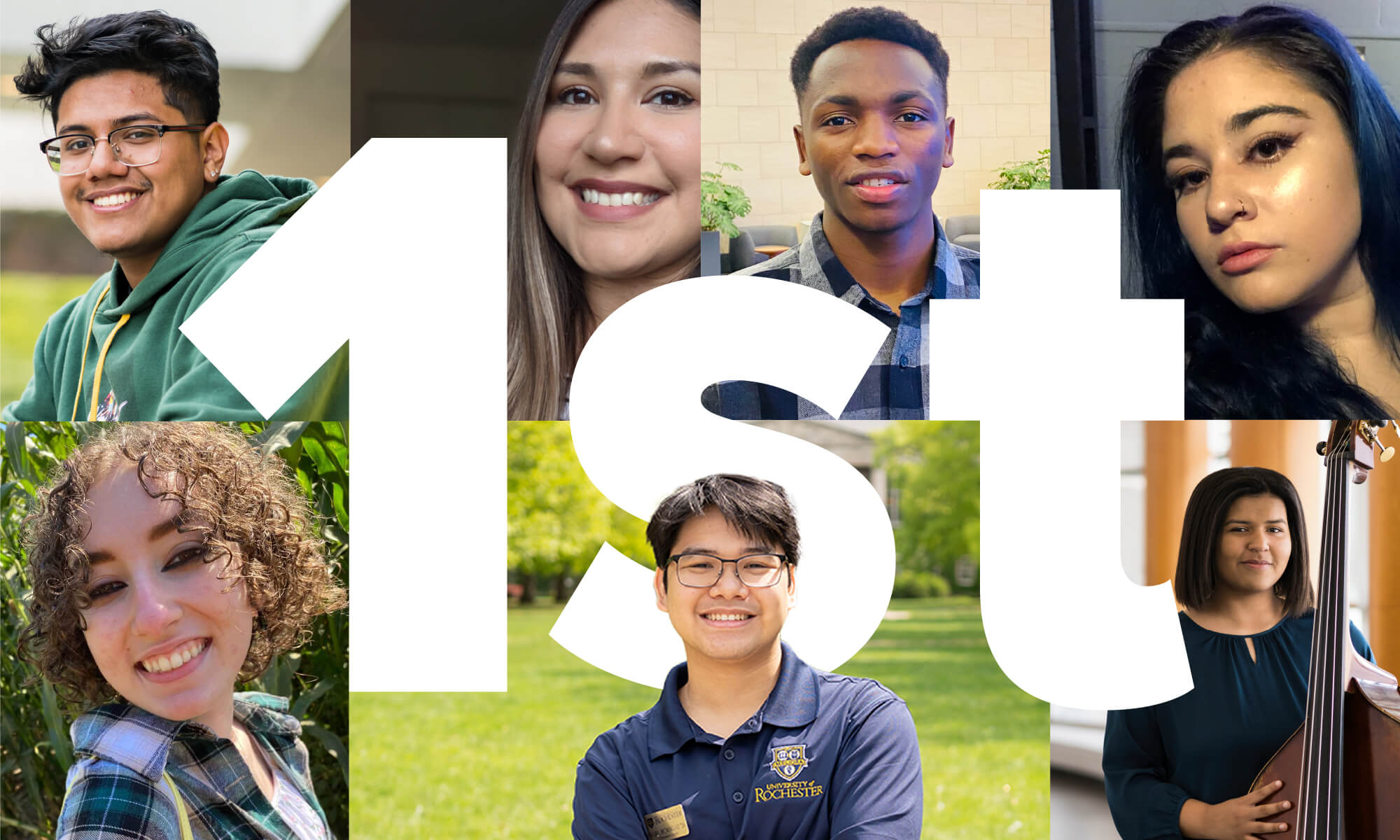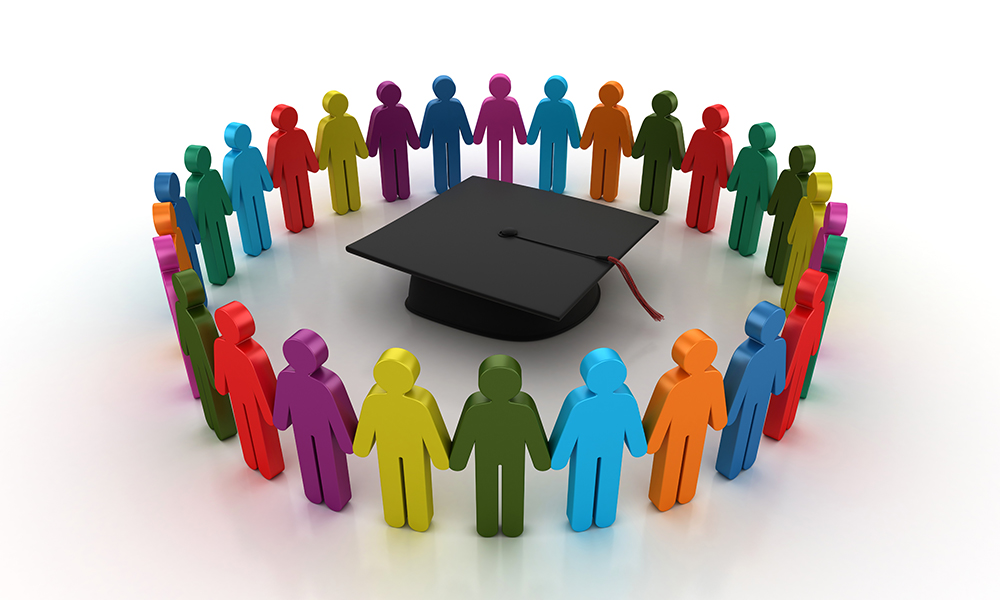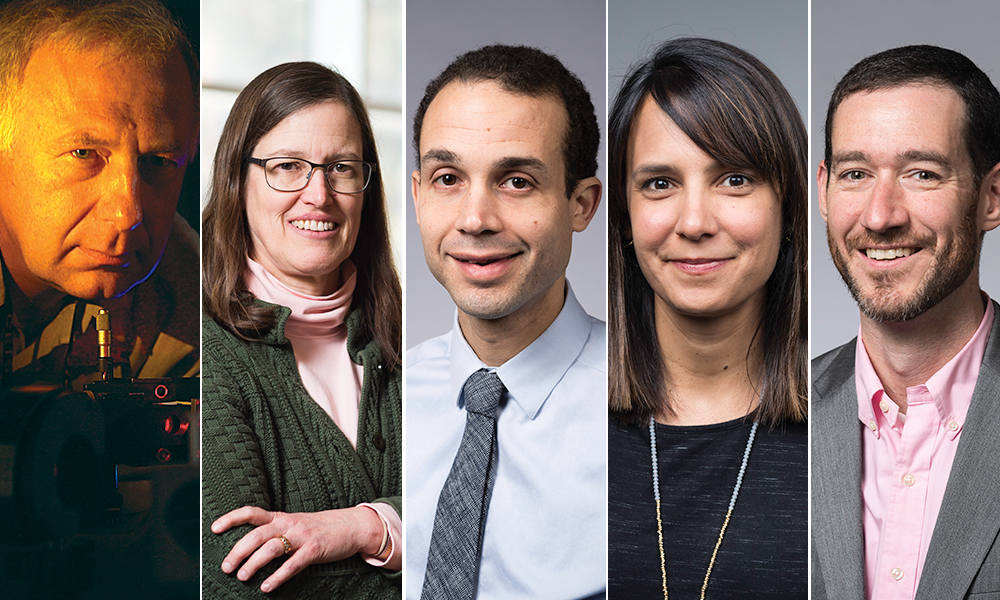Tanatchaya Chanphanitpornkit and Nichole Waligóra—the first in their families to attend university—have forged a lasting connection as mentor and mentee.
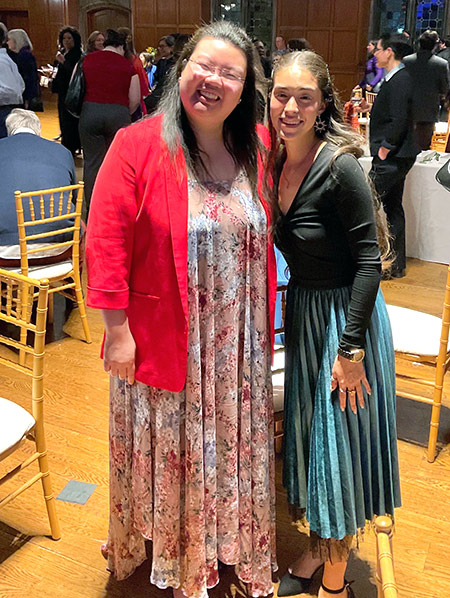
Nichole Waligóra ’26E, ’26 and Tanatchaya (Tanya) Chanphanitpornkit ’15E are two remarkable University of Rochester women who share a special bond: they are first-generation college students. At Rochester, this means that neither of their parents or guardians earned a bachelor’s degree from a college or university anywhere in the world—making them the first in their immediate families to do so.
Their achievement connects them to a larger community of students—at Rochester and beyond—who have broken generational barriers and paved new paths for their families. The pair met when they joined the University’s Meliora Collective Mentorship Program in 2023, becoming one of approximately 376 mentor-mentee duos participating in the program today.
Chanphanitpornkit is a music educator, double bassist, and conductor. She teaches at Nyack Public Schools in New York and conducts at the Manhattan School of Music Precollege and at the New York Youth Symphony. Her teaching positions in higher education include Columbia University, William Paterson University, and the College of New Jersey. She is a founding member of the nonprofit Girls Who Conduct. Chanphanitpornkit is currently a doctoral student at Teachers College, Columbia University, and received the University of Rochester’s Alumni Service Award in 2024.
Chanphanitpornkit’s family moved from Thailand to the United States when she was ten to provide her with better educational opportunities. She knew her passion was music. In high school, during a trip to the University’s Eastman School of Music to audition, the orientation committee made her feel like she was already part of the campus community.
Her parents, recognizing the value of a strong academic foundation, prioritized her education and envisioned a college degree as the ultimate goal. When she enrolled at Eastman, Chanphanitpornkit took a pivotal step on her transformative higher education journey.
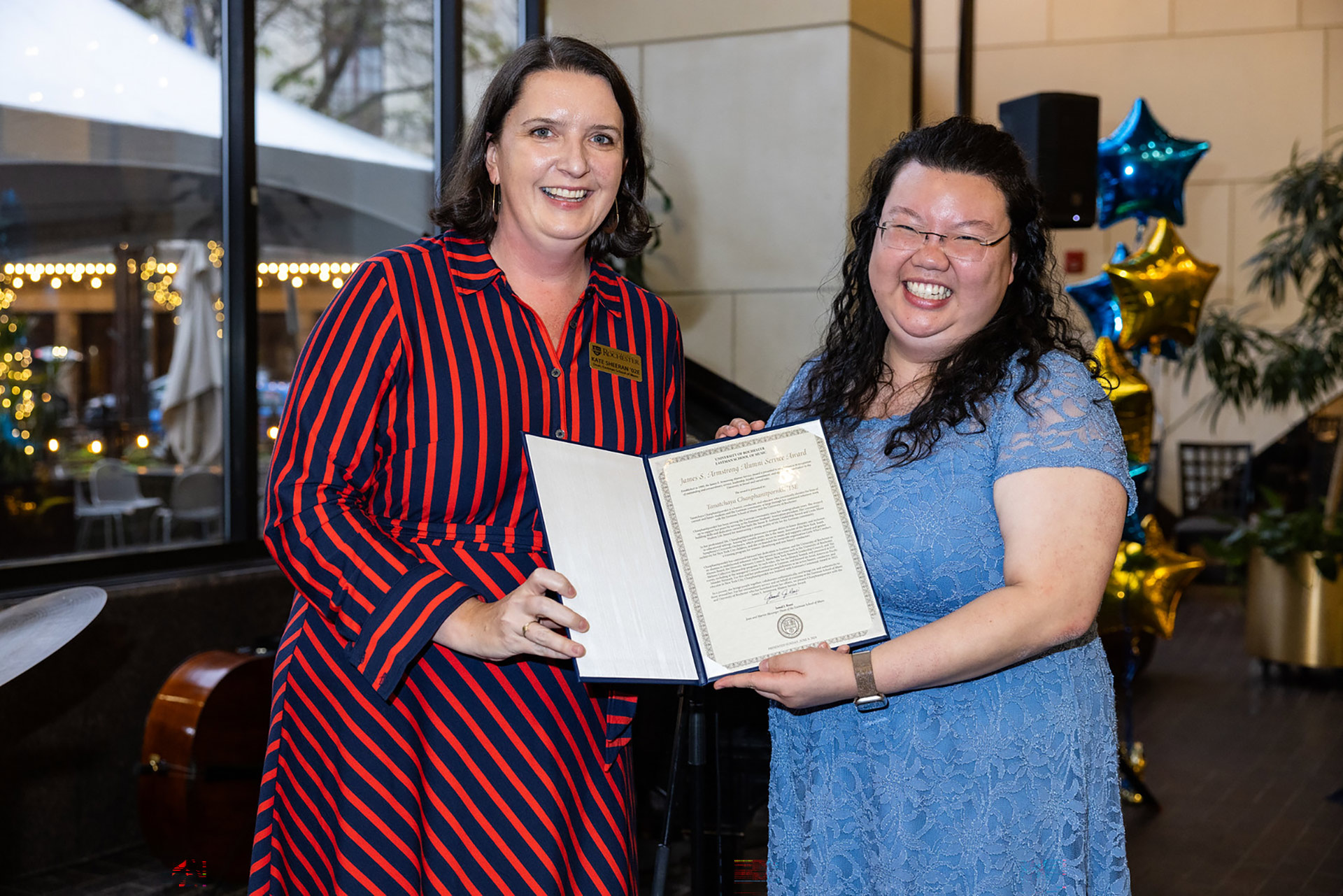
Waligóra, meanwhile, is a third-year undergraduate student pursuing a dual degree in vocal performance from the Eastman School and in linguistics from the School of Arts & Sciences. She serves as the vice president of Eastman’s American Choral Directors’ Association and as secretary of the Students’ Association, in addition to her roles as a Student Alumni Ambassador and a founding member of both the University’s Polish Students’ Association and the Eastman Latino and Hispanic Students’ Association.
Growing up in Queens, New York, Waligóra’s Polish father and Peruvian mother instilled in her a strong work ethic and a love for learning. Their support for her musical aspirations required significant sacrifices of investment and time, allowing her to pursue classical music with dedication and gratitude. This mutual admiration is evident as Waligóra excels in her chosen fields and incorporates her culture in her work.
Navigating the college experiences—with an assist from the University
Chanphanitpornkit’s prospective student orientation at Eastman solidified her choice to apply and attend. She was drawn to the vibrant community, the supportive atmosphere, and the potential for personal growth. “Eastman is the place that will shape who I am for the next four years, and I am going to go here,” she recalls thinking to herself.
Waligóra, for her part, prioritized strong program offerings, supportive faculty, and opportunities for interdisciplinary studies during the college search. Following a teacher’s advice and focusing on these critical factors, she navigated the complex process of selecting a school, ultimately choosing the Eastman School of Music, which met all of her criteria.
While Chanphanitpornkit’s and Waligóra’s choice to attend Eastman was straightforward, the application process as a first-generation student proved more challenging.
For students applying to universities in the United States, the college application process—particularly the financial aid portion—can be overwhelming and stress-inducing. And for first-generation students, the process is often compounded by financial literacy constraints, limited familial or professional guidance, and the daunting task of completing complex forms on strict deadlines.
The University of Rochester is committed to supporting first-generation students throughout their entire academic journey.
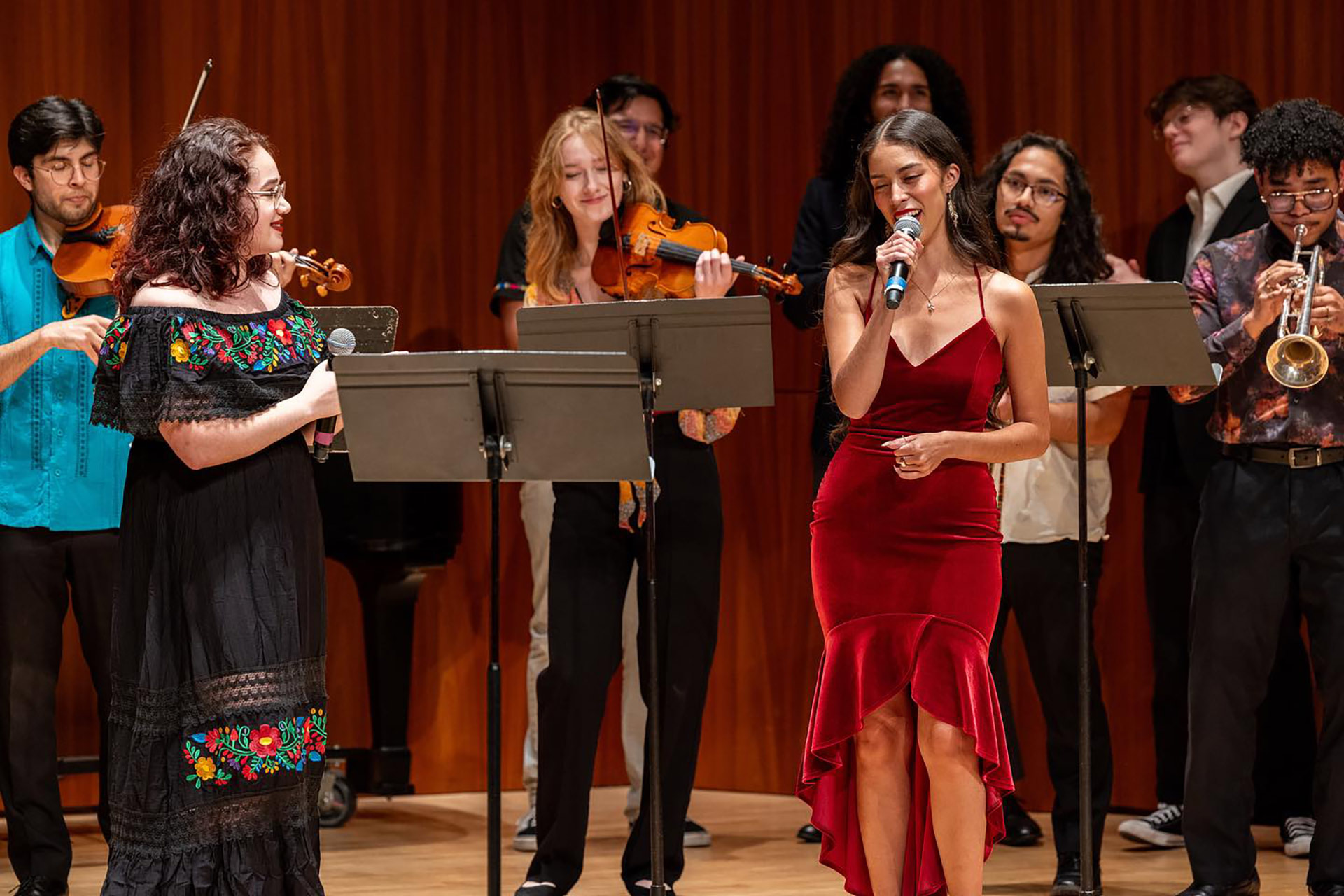
For prospective students, the admissions office is ready to answer questions about the application process, academic programs, and campus life. The financial aid office can help navigate federal student aid options (including FAFSA), scholarships, and loans. Waligóra, who now works in the admissions office, confirms that the University welcomes questions and encourages first-generation students to be open about their needs.
That welcoming spirit extends to the on-campus student experience, with services and opportunities for first-generation students embedded throughout the University. In addition to guidance from faculty and staff, the Parents and Families website provides a place to explore resources, events, scholarships, stories, and more to support the first-generation community.
Chanphanitpornkit shares, “The resources were always there. I just didn’t know they were always there.” Which is why she’s made it priority to help get the word out to fellow first-generation students like Waligóra.
A bond forged through mentorship
Chanphanitpornkit and Waligóra found a meaningful connection through the University’s Meliora Collective Mentorship Program, with their shared understanding of the challenges and triumphs of being a first-generation student—something the mentorship program coordinators considered when pairing them together.
It can, after all, be challenging for first-generation students to share their college journey with family who have not experienced the same complexities of applying to and attending college. Yet the Meliora Collective Mentorship Program provided a safe space for them and others to discuss their experiences openly.
In their mentor-mentee relationship, Chanphanitpornkit offers guidance, counsel, and advice to Waligóra, helping her navigate the complexities of college life. In turn, Waligóra provides a listening ear, allowing Chanphanitpornkit to reflect on her journey and connect with her first-generation identity even more. The power of their connection lies in their shared vulnerability. As Chanphanitpornkit puts it, “Nichole has given me the gift of processing my own experiences.”
First-hand advice for first-generation students
Chanphanitpornkit and Waligóra offer words of wisdom based on their experiences, reflections, and interactions.
- Don’t hesitate to ask for help. Contact the admissions and financial aid offices, professors, and advisors when you need assistance. No question is too small to ask.
- Connect with other first-generation students. Building relationships with peers who share similar experiences can provide invaluable support, advice, and community.
- Embrace your unique perspective. Your first-generation status can be a strength. Use it to bring diverse perspectives to your academic and social experiences and conduct positive change wherever you go.
- Take advantage of campus resources like the Meliora Collective Mentorship Program. Participate in programs that connect you with those who can help offer guidance and inspiration.

